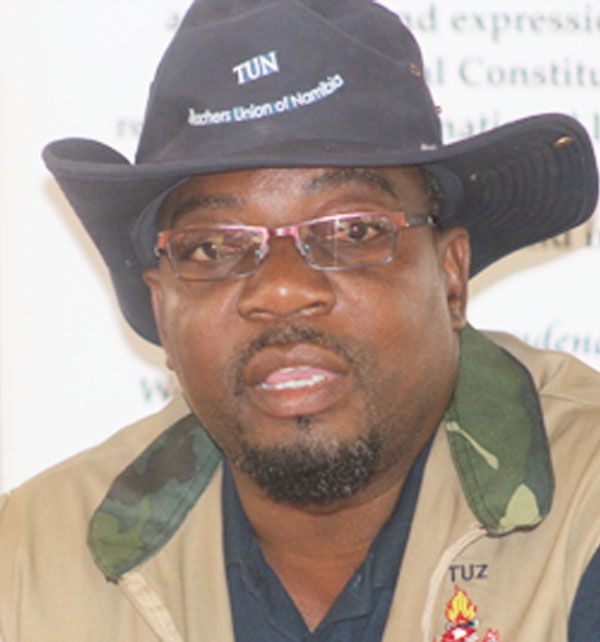
IMF concerned over bloated civil service
The visiting International Monetary Fund (IMF) team is concerned about the high number of people employed in the civil service and the continued reliance on public funds by State Owned Enterprises (SOEs).
But despite their concerns, the IMF team said it was impressed with the government’s reform agenda.
The IMF Mission Chief for Namibia Lamin Leigh told the Economist on Thursday at the end of the mission’s work that his team was impressed with the government’s reform agenda as outlined in the current budget as well as by the positive fiscal environment.
He said while there are some areas that needs strengthening, overall his team was impressed with the way the country’s macro-economic environment was being managed.
Welcoming the IMF report, the Minister of Finance Hon.
Saara Kuugongelwa-Amadhila said most of the concerns highlighted by the IMF team are issues that government is already aware of. She said “The issues that are highlighted are issues that we know ourselves.
Skills shortage, for example, continues to be a problem and it undermines the country’s efforts to address the development challenges.
They have pointed out the problem with the performance of state-owned enterprises and here again we have been seized with this matter for a very long time.
They just highlighted the need for us to continue with those efforts and strengthen them in order to have a better performance in the optimal contribution of SOEs to national development.”
“There are issues with the size of the public service and the wage bill which ourselves we have highlighted as an area of concern a number of times” the minister said adding that Cabinet decided recently to institute measures to investigate options that could be considered to try and deal with the continually escalating personnel costs within the budget, but she said reforms in the civil service was a complex issue given the high unemployment rate.
|”We know that this is an issue that is complex,” Kuugongelwa-Amadhila said.
“We have decided to take a systematic approach to it.
We don’t want to be too hasty and try to prescribe solutions before we have gone through the whole process that we have set ourselves to carry out.
We do recognise that we face a situation of high unemployment so we don’t want to create apprehension that we are going to embark on a massive retrenchment of people.
We also want to look at best practices where these issues may have been dealt with in a way that does not really aggravate the unemployment.”
The minister said she is reluctant to talk about possible measures to address the increasing personnel expenditure as Cabinet was still investigating options in a process that is being spearheaded by the Office of the Prime Minister.
Kuugongelwa-Amadhila said the IMF team was also concerned about the lack of capacity to optimally use funds that are appropriated every year especially those that are appropriated for development expenditure.
“Again this is an area that we have been looking at, one that is requiring reforms and I think we have instituted reforms in that regard as you know.”
“In that regard we have embarked on a business process review for the procurement system.
We are reforming the procurement system, we are strengthening our engineering capacity to make sure that we have enough numbers and adequate skills to plan and supervise and monitor the implementation of capital projects.
We are looking at the planning aspect of projects to make sure that the projects are properly planned and the implementation is well co-ordinated and followed up on to ensure that we meet the targets that we have set for project implementation.”
The IMF team has been in the country for the annual Article IV consultations since 24 October.










































